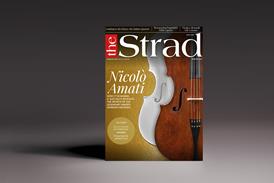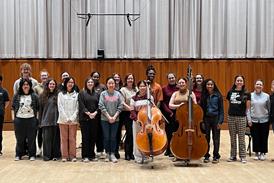- News
- For Subscribers
- Student Hub
- Playing Hub
- Directory
- Lutherie
- Magazine
- Magazine archive
- Whether you're a player, maker, teacher or enthusiast, you'll find ideas and inspiration from leading artists, teachers and luthiers in our archive which features every issue published since January 2010 - available exclusively to subscribers. View the archive.
- Jobs
- Shop
- Podcast
- Contact us
- Subscribe
- School Subscription
- Competitions
- Reviews
- Debate
- Artists
- Accessories
Empty Chairs at Empty Tables: Lutherie and Covid-19

Violin makers worldwide were hit hard by the Covid-19 outbreak as the customers dried up – nowhere more so than in Italy. Peter Somerford speaks to makers in Cremona, Florence and Modena to find out how the industry is gradually getting back on its feet
The Covid-19 pandemic has plainly been devastating for musicians, but for those who make and service their instruments, the impact has been less visible. Makers who, unlike players, might have been working throughout the crisis, now face the challenge of selling instruments and bows in a market crippled by international travel restrictions, and at a time when musical activities are still on hold or only slowly restarting.
For a case study of how makers have been affected and are responding to the crisis, Italy, with its high concentration of violin makers – no more so than in Cremona – is an obvious candidate. The country was hit early and hard by Covid-19, and Lombardy, the northern region that’s home to Cremona and its 140 or so violin workshops, was hit hardest of all. As the pandemic peaked in Italy in late March, Lombardy, with a population of just over 10 million, recorded 3,251 new cases and 546 deaths from the virus on a single day. Compare this with London, which has a population of close to 9 million, where the highest one-day figure for hospital deaths was 249 (9 April) and the highest one-day total of new cases was 1,220 (1 April). Cremona was in partial lockdown by late February, and Italy went into full national lockdown on 10 March. Most businesses were allowed to reopen from 18 May, and in mid-June theatres and concert venues were able to restart performances, with strict social distancing and health regulations in place. One-to-one instrumental teaching resumed at Cremona’s Claudio Monteverdi Conservatoire on 23 June…
Already subscribed? Please sign in
Subscribe to continue reading…
We’re delighted that you are enjoying our website. For a limited period, you can try an online subscription to The Strad completely free of charge.
* Issues and supplements are available as both print and digital editions. Online subscribers will only receive access to the digital versions.




























